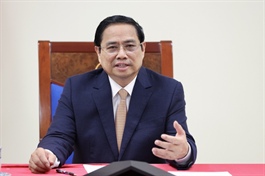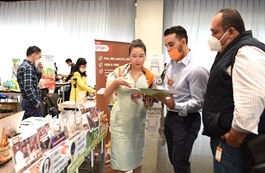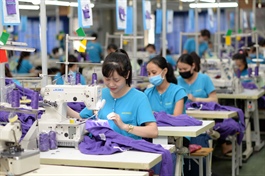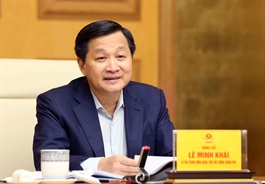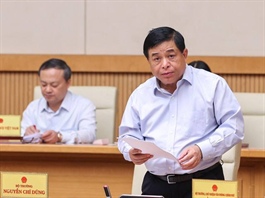State budget faces $1.4 billion drop from fuel tax cuts
State budget faces $1.4 billion drop from fuel tax cuts
Measures taken to bring down petrol prices could reduce State budget collection by VND32.5 trillion (US$1.4 billion) this year, according to deputy minister of finance Nguyen Duc Chi.

Speaking to reporters at the ministry's monthly meeting, Chi said the Ministry of Finance has put forward a proposal to cut or remove a number of fees and taxes on fuel imports in an attempt to rein in rising petrol prices, which has been hurting economic recovery and businesses.
The proposal, which has been approved by the National Assembly's Standing Committee, brought import tax on gasoline from VND2,000 to VND1,000, jet fuel from VND1,500 to VND1,000, diesel from VND1,000 to VND500 and lubricant from VND,000 to VND300.
Chairman of the NA Vuong Dinh Hue said as fuel was considered among the country's strategic commodities the government was to utilise all measures and policies at its disposal to regulate prices for the benefit of economic recovery and stability.
The deputy minister said if implemented from August, the cuts would likely result in a VND7 trillion (US$302 million) drop in the State budget. Combined with previous cuts under decisions by the NA's Standing Committee since the beginning of the year, the State budget collection, by the ministry’s estimation, will fall by $1.4 billion in 2022.
As global oil prices continue to rise, Viet Nam’s oil export was said to increase by VND9 trillion this year, which helps offset the drop in State budget collection after the tax cuts.
“We have also been looking into other ways to help bring down domestic petrol prices including possible import tax breaks, VAT and special consumption tax cuts,” said the deputy minister.
For the time being, the ministry is to closely watch global and domestic petrol prices to make sure timely interventions can be implemented to best support the country’s socio-economic development.
Bui Ngoc Bao, president of the Vietnam Petroleum Association (VINPA), called on the ministry to reduce the country’s current most-favoured-nation tariff from 10 per cent to 8 per cent for a fixed period of time and to tighten regulations on fuel trading.
In a recent online conference with local governments, Prime Minister Pham Minh Chinh told governmental offices and ministries all policy and fiscal tools were made available to policymakers in order to bring down Viet Nam’s petrol prices. However, he said the implementation must be carried out step-by-step to ensure fuel traders receive the best possible support.
Since the beginning of the year, fuel prices in Viet Nam have increased 13 times, bringing fuel prices to a historically high level with RON 95-III gasoline (the most commonly used type in the country) to VND32,760 per litre, E5 RON 92 to VND30,890 and diesel to VND29,610 per litre, nearly 50 per cent higher than January 2022.




